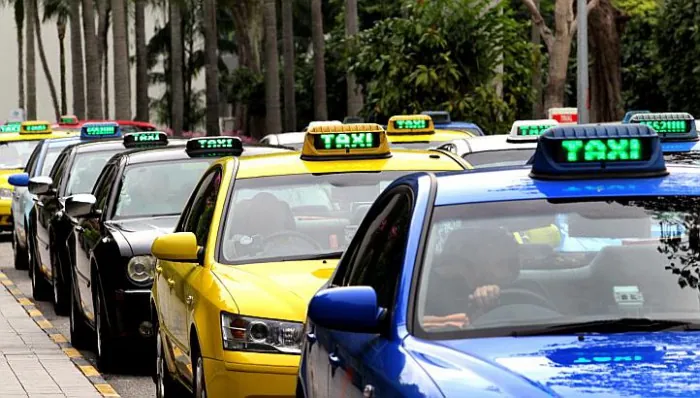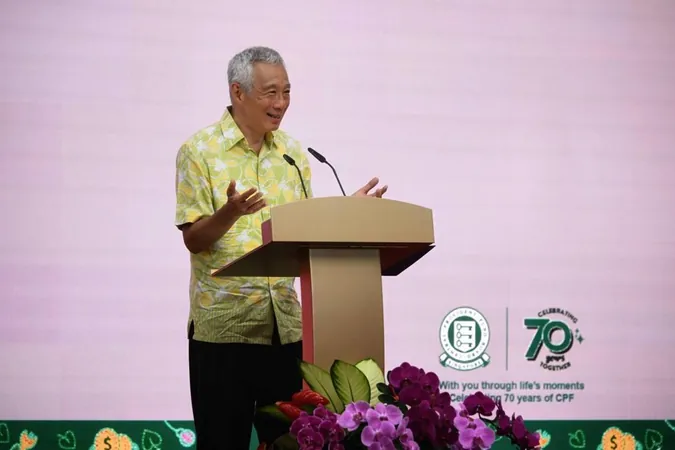
Singaporeans Rally Behind Grab Driver After Woman's Frustration Over Lost Item
2025-01-03
Author: Daniel
Introduction
In a surprising turn of events in Singapore, a woman’s complaint on social media about a Grab driver’s lack of assistance in retrieving a forgotten bottle sparked significant backlash, with many users defending the driver’s perspective.
The Incident
The incident unfolded when the woman took to the Complaint Singapore Facebook page, expressing her frustration about the difficulties she faced in retrieving a bottle left in the Grab vehicle after a ride to her workplace in an Accident & Emergency clinic. According to her account, after reporting the lost item through the Grab app, she found the process cumbersome and perplexing.
Social Media Reaction
In her post, she questioned why returning lost items was so complicated, hinting that if she had left behind something more valuable, like jewelry, the driver might have claimed he didn't find it. She also expressed discontent over the driver’s comment about being 'just a regular taxi driver,' implying that he should have held higher responsibility as a Grab driver.
Driver's Response
The woman then asked the driver if he could return the bottle to the hospital, but he informed her that he wouldn’t be able to do so immediately and suggested waiting until the next day. When she expressed her concern about being charged for the journey, the driver offered options for retrieving the bottle herself or leaving it at a lost-and-found.
Continued Discontent
Her discontent continued as she branded the driver’s insistence that she collect the item absurd, further calling into question Grab’s customer service policies. She emphasized that had the driver been more courteous, she would have considered tipping him for his effort.
Online Community's Defense
However, the online community responded robustly, urging the woman to reassess her expectations. Various commenters reminded her that the driver’s responsibility ended once he dropped her off. One commenter articulated that expecting post-service assistance was unrealistic, stressing that the driver’s time was valuable and returning the item would have been voluntary rather than mandatory.
Debate on Accountability
Another user sharply pointed out the absurdity of expecting someone else to take time out of their workday to solve her problem without compensation. This exchange underlines a growing sentiment that personal accountability should be prioritized over entitlement.
Broader Implications
While the dialogue took off online, it raises broader questions about customer expectations in the gig economy and the balance between convenience and accountability. As Grab continues to gain popularity in Singapore and other parts of Asia, the debate over driver responsibilities versus customer expectations illustrates a pressing need for clear communication and stringent policies regarding lost items.
Conclusion
This incident serves as a reminder that in the hustle and bustle of daily life, it’s vital to remember the shared humanity between service providers and their customers. As the conversation continues, one thing is clear: a lost item can lead to more than just inconvenience—it can spark a larger discussion about how we treat each other in our fast-paced lives.



 Brasil (PT)
Brasil (PT)
 Canada (EN)
Canada (EN)
 Chile (ES)
Chile (ES)
 Česko (CS)
Česko (CS)
 대한민국 (KO)
대한민국 (KO)
 España (ES)
España (ES)
 France (FR)
France (FR)
 Hong Kong (EN)
Hong Kong (EN)
 Italia (IT)
Italia (IT)
 日本 (JA)
日本 (JA)
 Magyarország (HU)
Magyarország (HU)
 Norge (NO)
Norge (NO)
 Polska (PL)
Polska (PL)
 Schweiz (DE)
Schweiz (DE)
 Singapore (EN)
Singapore (EN)
 Sverige (SV)
Sverige (SV)
 Suomi (FI)
Suomi (FI)
 Türkiye (TR)
Türkiye (TR)
 الإمارات العربية المتحدة (AR)
الإمارات العربية المتحدة (AR)